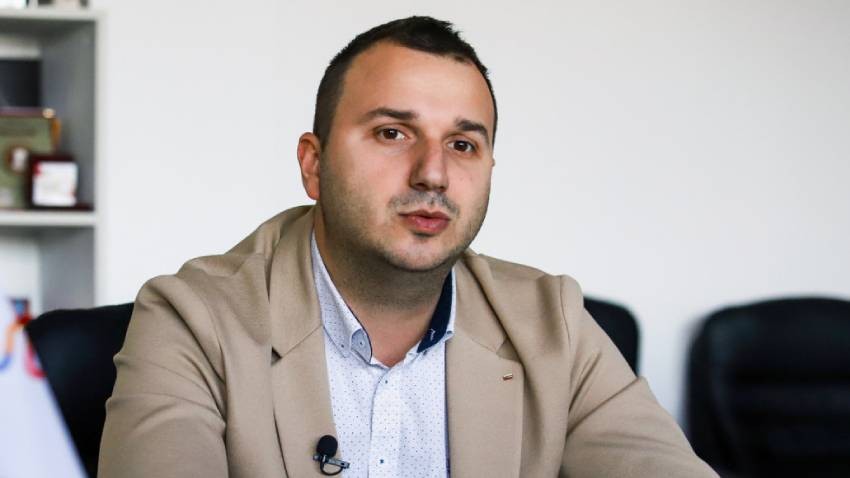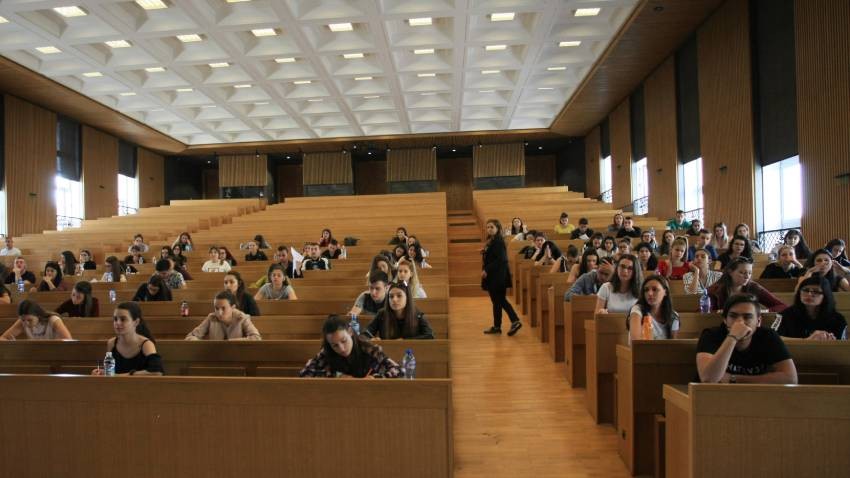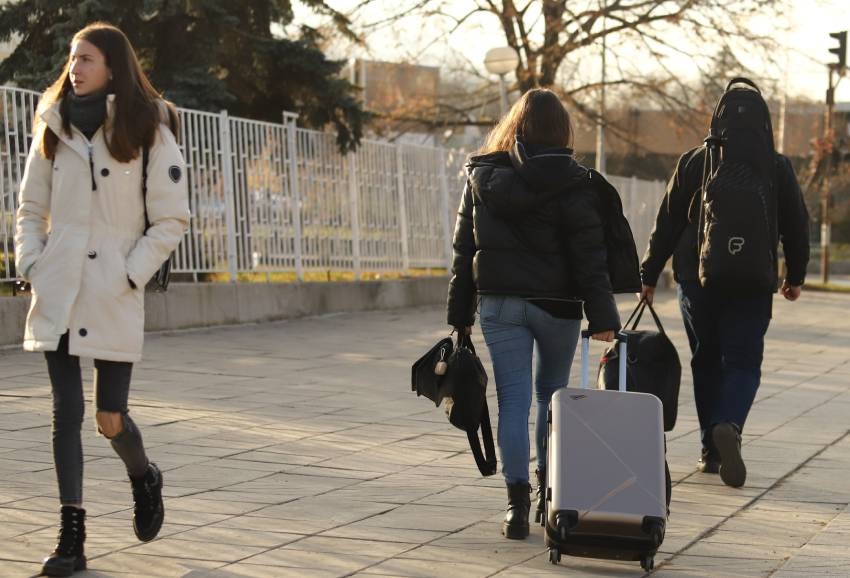“The best thing about student life for a young person is celebrating 8 December,” says the chairman of the National Assembly of Students' Councils of Bulgaria Daniel Parushev*.
After the period of isolation and anti-pandemic measures, more than 214,000 students from 51 higher educational establishments in the country (214,782 is the number of university students in Bulgaria during the academic year 2022/2023, according to National Statistical Institute data) will be celebrating 8 December with their fellow students.
“The student community, especially those who started their education at the time of the pandemic, have not been actively involved in any 8 December activities. They spent the day shut up at home with their parents. And now they are excited, emotional with lots of students now heading for the resorts in the country where they are going to have a long weekend to celebrate,” Daniel Parushev says in an interview with Radio Bulgaria. 
The international students’ day has been observed on 17 November since 1941, on the proposal of the International Student Council in London, but the tradition in Bulgaria is different, and goes back to 1903 when 8 December was declared the day of the only university in the Principality of Bulgaria – the school of higher education in Sofia, today the St. Kliment Ohridski University.
“8 December is a symbol. It is a symbol of the young, of a spontaneous community, of the community that can change the way we are living, change the country as a whole. That is why in the Western countries university students are regarded as one of society’s most important assets – because they are young, full of energy and help every economy advance. They are very motivated. This day is a symbol of knowledge, of good contacts because the student years is the time when people are formed as more responsible, thinking persons,” Parushev says.
However, this community – the motor of change – is formed before that, at school. Taking a look at the results from the Programme for International Student Assessment (PISA) from 80 countries around the world, released a few days ago, things are not looking rosy for Bulgaria.
Is the excitement of today’s students on this day Pyrrhic?
“It is a fact that has been more and more noticeable in recent years – that young people have been paying more attention to the new technologies, to their digital devices, and have been reading less – functional illiteracy is a fact, and it is all around. Yes, there are students who are below standard. Some school goers never manage to get into university, others don’t even try to continue their education. There are people with deficiencies in their knowledge levels when they enter university - how to write their CV even – but with the help of their teachers, these deficiencies are made up for within months. I am going to give you more data – out of the people graduating from universities in this country, until five years ago 25% emigrated. At the moment this percentage is down to 15. So, on the whole it can be said that students in Bulgaria remain in Bulgaria where they pursue a career. This percentage will continue to go down because this country, at least in the big towns and cities, offers good living conditions. People who graduate work for international companies, they speak foreign languages, know about finance, and are good experts in their own fields,” explains the chairman of the National Assembly of Students' Councils of Bulgaria.
As to the supply/demand equation from the point of view of businesses and of universities, Daniel Parushev says more and more university graduates are working in their chosen field of study, especially when it comes to spheres like medicine, finance, agronomy and architecture.
“The tendency is for more and more Bulgarian university students to want to return to their country. Of course, there are destinations at the moment like the Netherlands, Germany and even the UK, in spite of Brexit, which offer very good conditions for an education, and for a career afterwards. But the current tendency is favourable for Bulgaria.”
Today, the EU is one big country, and it is immensely valuable for young Bulgarians to travel, to take different courses, to specialize and take a master’s degree abroad, to get to know different cultures and educational systems even, and only then make their long-term life and career development plans.
Lifelong learning
“There is a good chance that the students celebrating today will be celebrating for a long time to come. Maybe not at resorts, and not with this kind of emotion, but there is a good chance they are going to be students for a long time. And that is a normal thing. That is the tendency in Western Europe and North America where people have 2-3 master’s degrees. And we are not talking about what we disparagingly call the “eternal student”. No, a person must pursue a career, undergo retraining, learn new things so as to be able to compete and not drop out of the picture. That is a tendency that is going to grow stronger in the years to come,” Daniel explains, and goes on to wish university students health, but also a sense of responsibility – when they are celebrating and when they are travelling.
“They should celebrate responsibly because, after all, tomorrow is another day, and everything should be within normal bounds so they can enjoy many more student days to come together.”
*Daniel Perushev was born in Burgas. He has a master’s degree in business administration, and is currently studying for a master’s degree in transport management at the University of National and World Economy. He is a member of the European Students’ Union, the academic council of the University of National and World Economy, and the public council with the minister of education, the national youth working group of the EU, as well as Sofia municipality’s youth consultative council.
Translated and posted by Milena Daynova
Photos: BGNES, freepik.com
Leading researchers and lecturers from the St. Kliment Ohridski University in Sofia and the Institute of Astronomy and National Astronomical Observatory of the Bulgarian Academy of Sciences will be paying a visit to the Museum of Natural History in..
The village of Oryahovitsa, Stara Zagora region, today celebrates its symbol - the walnut tree. There will be a Festival of the Walnut with a varied programme featuring the Kazanlahsko Nastroenie (Kazanlak Cheer) Orchestra, the soloist of..
Disputes in Croatia over sending military personnel to NATO mission in support of Ukraine NATO Acting Deputy Secretary General Boris Ruge visited Croatia to explain to local MPs about the Alliance's mission in support..
Two graduates of the Bulgarian School "Saints Cyril and Methodius" in Jordan presented their achievements at an event at their school "Hadi al Muhammadi"..
Radmila Sekerinska from North Macedonia appointed NATO Deputy Secretary General NATO Secretary General Mark Rutte has appointed Radmila Sekerinska..
1000 participants will take part in the first Burgas Half Marathon, which will take place this Sunday, 24 November. The event will bring together..

+359 2 9336 661
